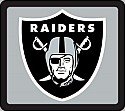
People that have read this blog know that I am a native of Niagara Falls, New York and that I grew up in Youngstown, New York. Anytime that I find key facts about the area I tend to post it as soon as possible. While reading Lust for Fame: The Stage Career of John Wilkes Booth I have found several interesting facts about his theatre performances. There is a direct link between Booth and myself. I have mentioned in other blogs that I grew up near Buffalo, New York and besides being remembered for four straight Super Bowl defeats, the place where O.J. Simpson played pro football and being pary of the rust belt, the area is my home. From October 28-November 9, 1861 John Wilkes Booth played at the Metropolitan Theatre in Buffalo during what was the heyday of his acting career. The theatre (which no longer exists) opened on October 15, 1852 and stood for 103 years on Main & Seneca Streets. Booths appearences at the Metropolitan was his only stint in the city of Buffalo and the actor took full advantage of the opportunity. Since 1855, Booth had played throughout the South and was quickly becoming a manintee idol.

Here is a listing of his performances:
October 28, 1861: Booth played Pescara in The Apostate
October 29, 1861: Booth played Hamlet in Hamlet
October 30, 1861: Booth played Othello in Othello
October 31, 1861: Booth played Julian St. Pierre in The Wife
November 1, 1861: Booth played Richard in Richard III
November 2, 1861: Booth played Charles De Moor in The Robbers
Novermber 3, 1861: Booth had the day off and most likely studied his lines and other roles
November 4, 1861: Booth played Romeo in Romeo and Juliet
November 5, 1861: Booth played Claude Melnotte in The Lady of Lyons
November 6, 1861: Booth played Macbeth in Macbeth
November 7, 1861: Booth played Richard in Richard III
November 8, 1861: Booth played Phidias and Rapheal in The Marble Heart
November 9, 1861: Booth played Fabien and Lewis in The Corsican Brothers.
Obviously, Booth's stint lasted thirteen days and included twelve performances. He had just established himself as a theatre performer was was no longer confined to one city as a stock performer. Back in the day you had to establish youself as a great actor before you could get an agent who could tour you from city to city. By this time Booth was recieving a substantial portion of the proceeds and Booth recieved praise for his performance despite being distracted by the oncoming Civil War. The Courier wrote that "for seeing Shakespearean parts rendered by one who has the manner of great actors, and who has shown himself a worth scion house of Booth."
The Metropolitan Theatre had its name changed to the Academy of Music in 1868 and it used thats named until its demolishment in 1954. Here is a picture of the Academy of Music as it appeared in 1868. Note is similarity to other theatres of the 1800's.

http://www.buffaloah.com/h/acad/index.html





2 comments:
In my part of the country we view that area as Timothy McVey's home.
Well if your from Ok. then I totally understand. But there are better things to Buffalo and it was a great place to grow up. It saddens me that one person like McVeigh ruined that location for a lot of people. The 1990's wasn't good for the city, it lost four Super Bowls, McVeigh's crime occured and John Wayne Bobbit had his issue as well. Its sad.
Post a Comment